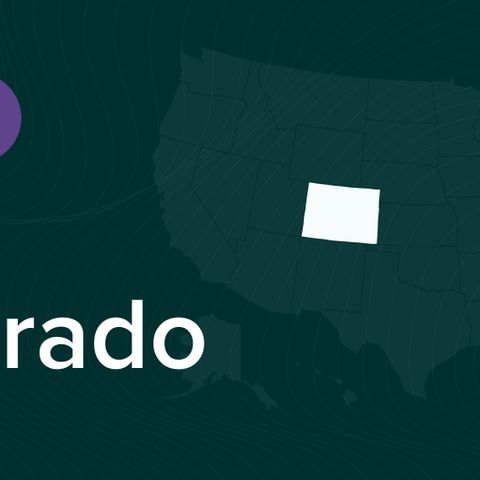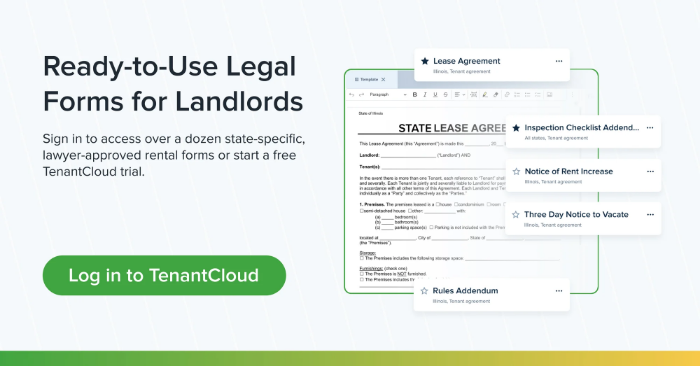
Whether you’re a landlord or tenant in Colorado, understanding the essentials of an eviction is crucial. Colorado's eviction laws are designed to ensure that both landlords and tenants meet their obligations while promoting a fair rental market. These laws also provide protection for all parties involved.
The foundation of a good rental relationship lies in a well-drafted rental lease agreement. This document sets clear expectations and offers legal protections for both sides. When disputes occur, a comprehensive lease can help resolve issues quickly and amicably. But what precisely do Colorado’s eviction laws entail?
If you’re interested in understanding the specifics of eviction regulations in Colorado, keep reading. We’ll cover what’s involved in the process, the timeline, and the key details you need to know—whether you’re a property owner or a tenant.
What is the Eviction Process in Colorado?
Navigating the eviction process in Colorado can seem overwhelming at first, but with a clear understanding, it becomes more manageable for everyone involved. Following the procedures outlined in the Colorado Revised Statutes is vital for ensuring both legal compliance and efficiency. Here’s an overview of what to expect:
- Initial Eviction Notice: The process begins with the landlord sending a written eviction notice. This crucial first step sets the potential for resolution.
- Filing an Eviction Complaint: If the issue remains unresolved, the landlord moves forward by filing an eviction complaint with the county court. This eviction action formally initiates the legal eviction proceedings, and it’s essential to serve the tenant using approved methods to maintain fairness and compliance.
- Court Hearing Scheduled: A court hearing is then scheduled, providing the tenant with the opportunity to respond. Attendance at this hearing is a pivotal moment in the process.
- Post-Court Hearing Actions: If the dispute is not resolved during the court hearing, further steps may be necessary. These can include obtaining a Writ of Restitution or arranging for sheriff-assisted evictions.
While the process might seem straightforward, adhering to the specific Colorado regulations at each stage is crucial. Following the guidelines, such as those in §§ 13-40-104 and 13-40-107.5, helps ensure a smooth, lawful procedure. But how long does the Colorado eviction process actually take?
Related: Kansas Evictions | Laws and Protections
How Long Does the Eviction Process Take in Colorado?
The timeline for the eviction process in Colorado can differ based on how quickly each step is completed. Initially, the landlord sends a written notice, usually a three-day notice for unpaid rent or a ten-day notice for other lease violations. If the tenant does not respond, the landlord may proceed with filing an unlawful detainer, which is a formal eviction lawsuit.
After this eviction filing, the court typically schedules a hearing within one to two weeks. Should the court decide in favor of the residential landlord, the tenant is given 48 hours to leave the premises before eviction enforcement begins. Generally, this entire process can last up to three weeks, though it may vary depending on circumstances.
Several factors may influence the length of the eviction timeline. A quick response from the tenant might speed up the process, while delays can occur if the tenant takes steps to extend proceedings or if court availability is limited.
Despite the variations in timeline, understanding the essential components of an eviction notice in Colorado remains critical.
The Key Aspects of a Colorado Eviction Notice
An eviction notice in Colorado is fundamentally a formal letter informing the tenant of a lease or rental unit agreement breach. Specific requirements must be met for each eviction notice, depending on the violation type:
Nonpayment of Rent: Generally, landlords issue a 10-day notice to pay or quit. For "exempt residential agreements," this period is reduced to 5 days. If the tenant chooses to make the overdue rent payment before the judgment, it can stop the eviction process.
- Lease Violations: Typically, a 10-day notice to cure or quit is given (5 days for exempt agreements). For repeated violations, landlords may serve a 10-day unconditional quit notice.
- Nuisance Behavior: A 10-day notice to cease the behavior or quit is required.
- Substantial Violations: Serious issues, such as endangerment or illegal activities, justify a 3-day notice to quit.
These details highlight key aspects of Colorado eviction notices that both tenants and landlords must understand. In such eviction cases, both parties have rights and responsibilities in relation to the eviction procedure.
What are a Tenant’s Rights and Responsibilities Regarding Evictions?
In Colorado, tenants have several key rights aimed at ensuring their living conditions and financial interests are protected. One of the primary rights is the assurance that tenants can live in their homes without the fear of wrongful eviction. If tenants believe they are facing unjust eviction, they can seek legal advice or file a complaint with the local housing authorities.
Another important area covered by Colorado law is the handling of security deposits. Typically, unless the lease specifies otherwise, landlords must provide a detailed written statement of damages and return the security deposit within about 30 days. This regulation promotes transparency and fairness in how security deposits, which are intended to safeguard the property, are managed.
Of course, landlords also have their own set of rights and responsibilities that shape their interactions with tenants.
Related: Understanding Oklahoma Eviction Laws: A Legal Overview for Landlords
What are the Responsibilities of a Colorado Landlord?
Landlords need to comply with Colorado landlord-tenant laws, ensuring they maintain a safe and habitable living space for their tenants. This involves promptly handling necessary repairs and guaranteeing that all utilities and facilities are in working order.
When considering eviction, landlords are required to follow specific procedures. This includes giving a written notice and a chance for the tenant to address the issue. By understanding and adhering to these requirements, landlords can avoid legal complications.
Common reasons for eviction can include not paying rent, causing damage to the property, or conducting illegal activities on the premises. Often, transparent and open communication can help resolve these issues before they lead to or cause eviction.
Additionally, landlords should be mindful of how foreclosures might affect tenants. In Colorado, tenants have protections that can allow them to stay in the property until their lease ends or at least 90 days after the foreclosure, depending on which period is longer.
What are the Grounds for Eviction and Legal Procedures?
Eviction laws in Colorado are shaped by House bills and legislation from the Colorado General Assembly, with notable updates as of April 2024. Both tenants and landlords should be aware of the various grounds for eviction, which can occur with or without cause.
Evictions with causes often stem from lease violations. The most common reason is not paying rent, which can lead to eviction if not resolved swiftly. Other reasons include unauthorized pets, surpassing occupancy limits, or engaging in an illegal activity, which includes but is not limited to drug offenses or violent behavior, all of which are significant breaches of the lease.
Evictions without cause, or just cause terminations, generally apply after a tenant has lived in a property for 12 months or more. Typical reasons for these evictions might include plans to demolish or significantly renovate the property or to sell it. In such cases, landlords must follow legal procedures to ensure the rights of both parties are adequately protected.
The Role of Law Enforcement and Legal Recourse in Evictions
When an eviction order is issued, it's typically up to state law enforcement—often a sheriff or constable—to carry out the order, called a Writ of Restitution. This document grants the authority to remove the tenant and their personal possessions from the premises if they do not leave on their own.
Both landlords and tenants navigate the civil process through the courts and established legal channels for real estate. They can use the Colorado Supreme Court and other judicial avenues to resolve disputes or file appeals. This system allows both parties to present their arguments and seek a fair outcome.
Keeping accurate eviction records is crucial during the eviction process. These records can affect future rental opportunities as landlords frequently check them when evaluating prospective tenants. Therefore, it’s in renters' best interest to resolve disputes amicably and avoid formal evictions whenever possible.
Related: Texas Eviction Laws Overview | Avoiding Legal Pitfalls
The Impact of Evictions on Tenants and Landlords
The eviction process is challenging for both Colorado tenants and landlords, with impacts that extend beyond just an empty rental property. For tenants, getting evicted means losing their homes and facing challenges when trying to rent again. An eviction on record can make it more difficult for residential tenants to renew leases or find new housing.
Landlords also encounter their share of difficulties. Evictions can interrupt income and complicate managing properties. It’s essential to follow legal steps carefully to avoid non-compliance and potential lawsuits. Knowing how to handle legal evictions, even no-fault evictions, is crucial for smooth business operations.
Preventing eviction issues often comes down to sticking to lease agreements. Tenants can avoid eviction by paying rent on time and following lease rules, while landlords can build good relationships by being transparent in communication and fair in enforcing leases.
In short, focusing on proactive communication and legal compliance helps both tenants and landlords. This approach leads to better rental experiences and smoother processes for lease renewals and future housing opportunities.
Sign up for TenantCloud Today to Enhance Tenant-Landlord Relations
Colorado eviction laws protect landlords and ensure that tenants adhere to lease terms. To learn more about these Colorado rules, Colorado Housing Connects can provide additional support for both tenants and landlords. By better understanding these laws, tenants and landlords can enhance their relationship and ensure a smooth property management experience. If you’re looking for a platform to boost communication between property managers and tenants, why not try TenantCloud?
TenantCloud simplifies the property management experience by providing all the features tenants and landlords require for smooth communication and clarity. Regardless of your industry experience, a user-friendly platform like this can help landlords send lease forms, handle maintenance requests, and keep their tenant accounts up to date.
Try TenantCloud today with a free trial to experience a seamless property management experience for all!





